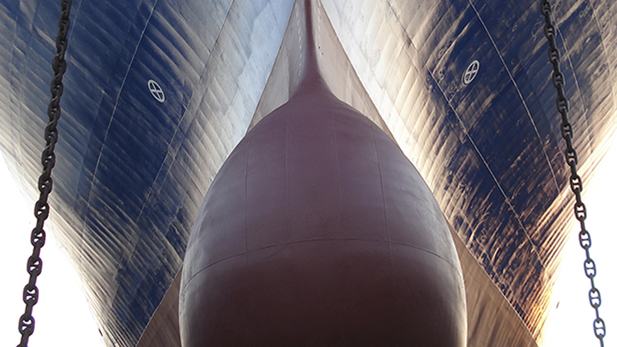New alliance boosts maritime research

SUMMARY
The Maritime Research Alliance (MRA) is a network organisation for maritime researchers at Danish universities and maritime academies that was launched during the Corona epidemic in summer 2020. MRA is now seriously getting down to work with a large number of activities that all share the common feature of being developed and carried out across maritime research environments. MRA is currently launching several new research projects and coordinating research activities across organisations. MRA simultaneously focuses on teaching in the maritime field and is working toward greater interdisciplinarity and more flexible education programmes. Another key task is to increase the visibility of maritime research and disseminate knowledge to all relevant actors.
The Maritime Research Alliance (MRA) is a network organisation for maritime researchers at Danish universities and maritime academies. MRA’s main purpose is to promote closer collaboration between maritime researchers and to put their research to use in society. MRA was launched in summer 2020 with support from the Danish Maritime Fund, a private commercial foundation that works for the development of Blue Denmark, where shipping companies alone account for around 25 percent of Denmark’s total exports.
MRA meets a large need for coordination across maritime research environments, which have been relatively fragmented historically. “We are changing that now,” points out MRA project manager Thomas Roslyng Olesen, PhD, who works at the Department of Strategy and Innovation at CBS.
“The individual maritime research environments possess considerable expertise. Collaborations between individual universities and the industry have taken place for years, but they have typically involved isolated projects with groups of researchers who already knew one another. This state of affairs has resulted in overlapping research and unproductive competition in terms of external funding. Overall it can be said that the focus has been on individual components as opposed to the holistic thinking that the maritime industry needs today,” explains Olesen, adding:
“MRA’s multidisciplinary efforts mean that the maritime research environments can jointly work to carry out much larger projects with multiple stakeholders. There will also be better opportunities to access funding in the European Union. Both aspects are crucial in terms of meeting the challenges that the maritime industry faces.”
THE BIRTH OF AN ALLIANCE
The first step toward establishing MRA was taken when leading maritime researchers began discussing how to deal with the fragmented structure across organisations. At the same time the maritime industry, industry organisations and government at the ministerial level communicated the desire to improve conditions to allow companies to better access maritime research.
This led researchers and the business community to hold a joint conference in 2018 at CBS to focus on these issues. Three areas were designated as essential to cross-disciplinary research collaboration and greater collaboration with the industry: digitalisation, automation and green transformation. MRA is working with exactly these three core areas today.
Besides Olesen and one additional researcher, MRA comprises a steering committee consisting of representatives from MRA’s ten member organisations: CBS Maritime, Maritime DTU (Technical University of Denmark), BLUE SDU (University of Southern Denmark), Centre for Maritime and Marine Research at Roskilde University, Centre for Logistics at Aalborg University, University of Copenhagen, Aarhus University, IT University of Copenhagen, MARTEC – Maritime and Polytechnic University College, and SIMAC – Svendborg International Maritime Academy, the last two of which train maritime workers.
NEW MARITIME RESEARCH
The members of the steering group, all of whom are leading researchers from the ten member organisations, are launching new initiatives such as research projects, participating in conferences and disseminating knowledge. A working group is established for each initiative adapted to the specific project. For example, a working group may consist of one or more members of the steering group, other maritime researchers and participants from the industry.
A cross-cutting research project on green labelling is being launched under the auspices of MRA that will examine the possibilities of developing eco-labels for goods transport. This type of complex project implies that the necessary expertise must be drawn from more than just a single university.
“MRA is also involved in other cross-cutting maritime research projects – either taking on the role of initiator or coordinator. Funding applications have been submitted for projects on, for example: Power-to-X, which allows the creation of carbon neutral renewable fuels of the future, the environmental effects of shipping, monitoring CO2 emissions from ships and innovation among students,” explains Olesen, adding that the research projects set in motion are regularly listed on MRA’s website.
In addition to facilitating new research, MRA also works with coordinating maritime research activities. There is an ongoing exchange of knowledge in the steering group about projects that are being considered across the country to clarify whether the potential exists for cross disciplinary collaboration. For example individual members of the steering group share information and collaboration activities with their various contacts in the field.
MAPPING TEACHING
Another MRA area of focus is the coordination of teaching in the maritime field. The initial aim is to draw up an overview mapping the education programmes that are currently available. The results will be compared with the skills the maritime industry of the future will require. The goal is to ensure that new educational opportunities are regularly established in maritime education programmes to meet the needs of the business community. In addition, gradual steps are being taken toward achieving a more holistic approach in current educational programmes.
“Concretely, this means that the aim is for our members to develop interdisciplinary programmes to allow maritime students to combine, for instance business innovation at CBS with technical innovation at DTU. The long-term goal is to create more flexible programmes to permit students to design a degree comprising modules from various educational institutions. This requires, however, a variety of structural changes in the way that bachelor’s and master’s programmes are set up today,” clarifies Olesen, who points out that this is why MRA is pursing areas wherein creating greater interdisciplinarity is already possible.
“We’re currently establishing a PhD programme in MRA with instructors from various educational institutions. This means that we can draw on the technical, commercial, legal and practical positions of strength that universities and maritime academies possess to create holistic courses to choose from,” explains Olesen.
Another cross-cutting educational initiative that Olesen highlights is a case-based event called Minimising energy and material consumption in maritime transport that MRA will hold 10–18 November 2021 at DTU Skylab. One-hundred students, ten from each of the ten member organisations, with vastly different skills, will participate. They will work with various maritime companies to come up with solutions to specific challenges that the industry faces. MRA will collaborate with ShippingLab, which is an innovative collaboration between The Blue Denmark and Danish Maritime, the latter of which is an industry organisation that supplies maritime equipment and sea vessels. ShippingLab assists with, for example, creating contacts to companies.
“Apart from concrete problem solving, another important purpose of the event is to have maritime companies meet potential future employees. We know that they face recruitment challenges and are hungry for talented people. The event will provide them with the opportunity to get to know the co-workers of tomorrow while also allowing students to demonstrate their skills and make contacts in the industry. Students will simultaneously get to know one another across groups and can begin building a network that will benefit them in the future,” asserts Olesen.
VISIBILITY OF MARITIME RESEARCH
Olesen emphasises that a central task of MRA is to increase the visibility of maritime research, which includes disseminating knowledge to every conceivable type of actor with an interest in the field – from the business community to legislators, NGOs and researchers to students and the media. In this regard MRA held ten webinars in spring 2021, where scholars presented the latest maritime research. The webinar series, which was created in collaboration with the cluster organisation MARLOG – Maritime & Logistics Innovation Denmark, had followers from a wide range of companies, researchers, ministries and the media in Denmark and abroad.
Finally, Olesen mentions the searchable overview of all maritime researchers in Denmark that MRA created on its website which lists their individual articles, reports and books as well as additional links to further information elsewhere on the internet.
“The main purpose is to make maritime research environments more accessible to the outside world to allow companies and other stakeholders to easily find researchers, also those with experience specific to the challenges they face. Doing so opens up opportunities for new relevant research collaborations,” concludes Olesen.
WOULD YOU LIKE TO KNOW MORE?
Please feel free to contact Thomas Roslyng Olesen, MRA project manager at: tro.si@cbs.dk
Read more about MRA